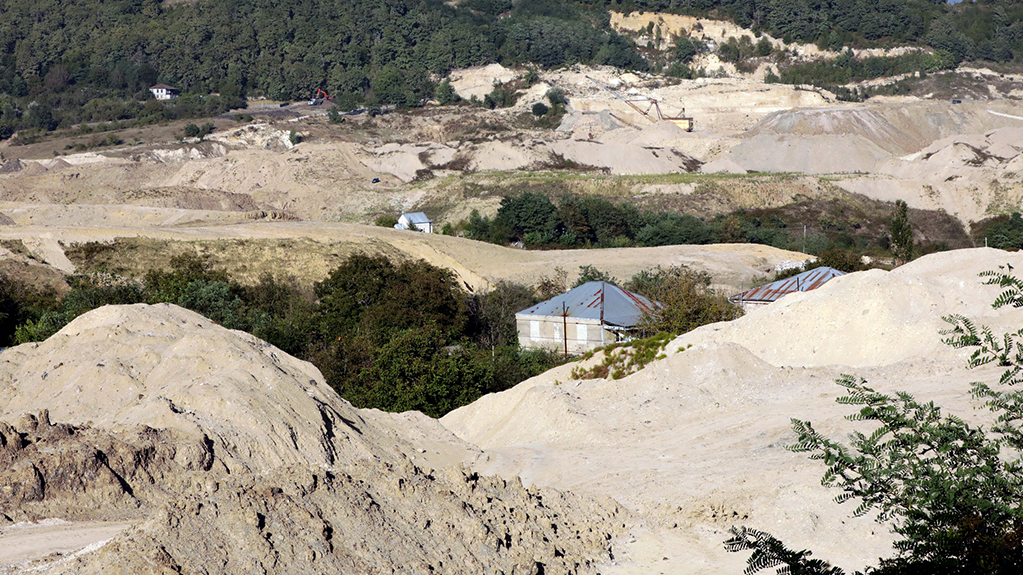The online publication Mountain Stories has filed a lawsuit against the Department of Environmental Supervision, the General Prosecutor’s Office, and the Investigative Service of the Ministry of Finance in the Tbilisi City Court. The publication is demanding the disclosure of 2015-2023 reports on atmospheric air pollution caused by Georgian Manganese LLC in Chiatura Municipality.
News
Trending stories
- 1 Former Prime Minister Garibashvili Sentenced to Five Years in Prison After Plea Deal
- 2 Otar Partskhaladze Charged with Organizing Murder of Businessman Levan Jangveladze
- 3 Shalva Papuashvili Says Georgian Dream Filed Complaint with BBC
- 4 Georgian Dream Party Further Tightens Grants Law, Introducing Up to 6 Years in Prison
Mountain Stories requested the data from the National Environmental Agency and the Department for Environmental Supervision on October 17, 2022.
The National Environmental Agency confirmed to Mountain Stories in writing that in order to determine the quality of atmospheric air, it conducts air pollution measurements in 25 cities of Georgia, including Chiatura, in four stages (March, June, September, and November), but did not provide us with the test results.
As for the Department of Environmental Supervision, which is responsible for taking reactive measures on instances of pollution, after Mountain Stories requested this data from them, they wrote to the Prosecutor’s office and the Investigative Service asking whether to hand over the materials.
Atmospheric air pollution is a crime covered by Article 295 of the Criminal Code of Georgia and is punishable by deprivation of the right to hold an official position and imprisonment for up to five years.
Due to the fact that the inspection established a high degree of atmospheric air pollution in Chiatura Municipality, which poses a threat to people’s health, the Department of Environmental Supervision has had materials submitted to the Prosecutor’s Office and the Investigative Service of the Ministry of Finance for several years.
It was on this pretext that the evidence of air pollution in Chiatura was part of an ongoing criminal case, that the prosecutor’s office and the investigative service denied the inquiry of the Department of Environmental Supervision whether to hand over the air quality data to Mountain Stories.
“Investigative agencies deemed the provision of requested data inappropriate, as it would lead to the disclosure of case materials, which may interfere with the objective investigation of the case,” informed Mountain Stories the Department of Environmental Supervision.
In reality, the prosecutor’s office only opened a criminal case but never actually investigated anything.
Mountain Stories believes that the atmospheric air pollution data is public, and concealing the inspection results is unacceptable in any circumstance, even if they are part of an active investigation.
Under Article 29 of the Constitution of Georgia, everyone has a fundamental right to a healthy environment, and everyone has the right to timely receive complete information about the state of the environment.
According to the law of Georgia on environmental protection, citizens have the right to receive complete, objective, and timely information about the state of their working and living environment.
Along with the national legislation, the Aarhus Convention also obliges Georgia to keep open environmental information.
The Tbilisi City Court accepted the lawsuit of Mountain Stories in the proceedings.
A few days ago, Mountain Stories published a journalist investigation – how the mining company Georgian Manganese, which makes fortunes from the extraction of manganese in the Chiatura region, completely disregards laws, inflicts irreversible damage to the environment, endangers people’s health, and literally buries their property and future perspective into the ground. In this criminal campaign, the Georgian Manganese’s ally and guardian is the state. Georgian Manganese has a 40-year mining license over 16 430 hectares of land in Chiatura and Sachkhere. On the pretext of avoiding an environmental disaster, a special state-appointed manager has been overseeing the company for seven years. Company activities are no longer inspected by the Department of Environmental Supervision. According to evaluation by independent experts, in this period, the environmental damage has at least doubled, and the situation is critical.















